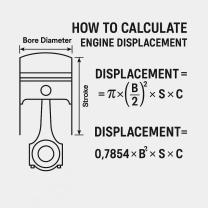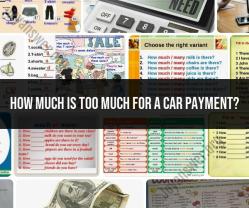Should I Finance with Toyota?
Whether you should finance a vehicle with Toyota or any other automaker depends on your individual financial situation, preferences, and needs. Here are the pros and cons of financing a Toyota to help you make an informed decision:
Pros of Financing with Toyota:
Ownership: When you finance a Toyota, you are working toward owning the vehicle outright. Once you complete your loan payments, you'll have full ownership of the car, and you can keep it for as long as you'd like.
Equity Buildup: With each monthly payment, you build equity in your Toyota. This means you're increasing your ownership stake in the vehicle, and it can have value as an asset.
No Mileage Restrictions: Unlike leasing, financing a Toyota doesn't come with mileage restrictions. You can drive as much as you want without worrying about excess mileage fees.
Customization: When you own a vehicle, you can customize it to your liking. You can make modifications or additions without worrying about violating lease agreements.
Flexibility: Financing typically offers more flexibility in terms of loan duration and down payment options, allowing you to tailor the financing arrangement to your budget.
Cons of Financing with Toyota:
Higher Monthly Payments: Monthly loan payments for financing a vehicle are often higher than lease payments. This can put a strain on your monthly budget.
Depreciation Risk: While financing allows you to build equity, you still bear the risk of the vehicle's depreciation. The car's value may decrease over time, affecting your equity.
Maintenance and Repairs: As the owner, you are responsible for maintenance and repair costs. Depending on the vehicle's age and condition, these expenses can be significant.
Long-Term Commitment: Financing typically involves longer-term commitments (e.g., 60 months or more). If you want to change vehicles frequently, this may not be the best option.
Interest Costs: You'll pay interest on the auto loan, which can add to the overall cost of the vehicle. The interest rate you receive can significantly impact the total amount you pay for the car.
In summary, the decision to finance a Toyota or any vehicle should be based on your financial situation and personal preferences. If you prefer ownership and plan to keep the car for an extended period, financing can be a good choice. However, if you prioritize lower monthly payments and the ability to drive a new car every few years, leasing might be a better option for you.
Before making a decision, it's essential to carefully review the terms of the financing agreement, including the interest rate, loan duration, and down payment, to ensure it aligns with your budget and long-term goals. Additionally, consider factors like your expected usage, maintenance preferences, and how long you plan to keep the vehicle. It's also a good idea to compare financing offers from multiple lenders, including Toyota's financing division, to find the best terms for your specific situation.
Should You Finance with Toyota: Pros and Cons
Pros:
- Competitive interest rates: Toyota Financial Services (TFS) offers competitive interest rates on auto loans.
- Flexible financing terms: TFS offers a variety of financing terms, so you can choose a monthly payment that fits your budget.
- Convenience: You can finance your Toyota vehicle through the dealership, which makes the process quick and easy.
- Peace of mind: TFS offers a variety of warranty and protection products that can give you peace of mind when financing your Toyota vehicle.
Cons:
- Fees: TFS charges a variety of fees, such as origination fees and prepayment penalties.
- Credit requirements: TFS has credit requirements for auto loans. If you have poor credit, you may not be approved for a loan or you may be offered a higher interest rate.
- Risk: If you default on your loan, TFS can repossess your vehicle.
Evaluating the Decision to Finance a Toyota Vehicle
Whether or not you should finance your Toyota vehicle depends on your individual circumstances. Here are some things to consider:
- Your credit score: A good credit score will help you qualify for a lower interest rate.
- Your budget: Can you afford the monthly payments?
- Your down payment: A larger down payment will lower your monthly payments and the total amount of interest you pay over the life of the loan.
- Your needs: Do you need a new car now or can you wait until you have saved up more money for a down payment?
Financial Planning and Budgeting for Car Financing
If you decide to finance your Toyota vehicle, it is important to create a financial plan and budget for your car payments. Here are some tips:
- Calculate your monthly payments: Use a car loan calculator to estimate your monthly payments. Be sure to factor in the cost of insurance and gas.
- Budget for car expenses: Create a budget that includes all of your car expenses, such as gas, insurance, maintenance, and repairs.
- Make extra payments: If you can afford to make extra payments on your loan, you will pay it off faster and save money on interest.
Alternative Financing Options for Toyota Vehicles
If you are not approved for a loan from Toyota Financial Services, there are other financing options available. You can try to get a loan from a bank or credit union. You can also consider leasing a Toyota vehicle.
Finding the Best Financial Path for Your Car Purchase
The best financial path for your car purchase will depend on your individual circumstances. Talk to a financial advisor to get help making the best decision for you.
Here are some additional tips for finding the best financial path for your car purchase:
- Shop around for the best interest rates: Compare interest rates from different lenders before you choose a loan.
- Consider a shorter loan term: A shorter loan term will mean higher monthly payments, but you will pay less interest over the life of the loan.
- Get pre-approved for a loan: Getting pre-approved for a loan will give you an idea of how much you can afford to borrow and what your monthly payments will be.
Conclusion
Whether or not you should finance your Toyota vehicle depends on your individual circumstances. Consider your credit score, budget, down payment, needs, and alternative financing options before making a decision.












